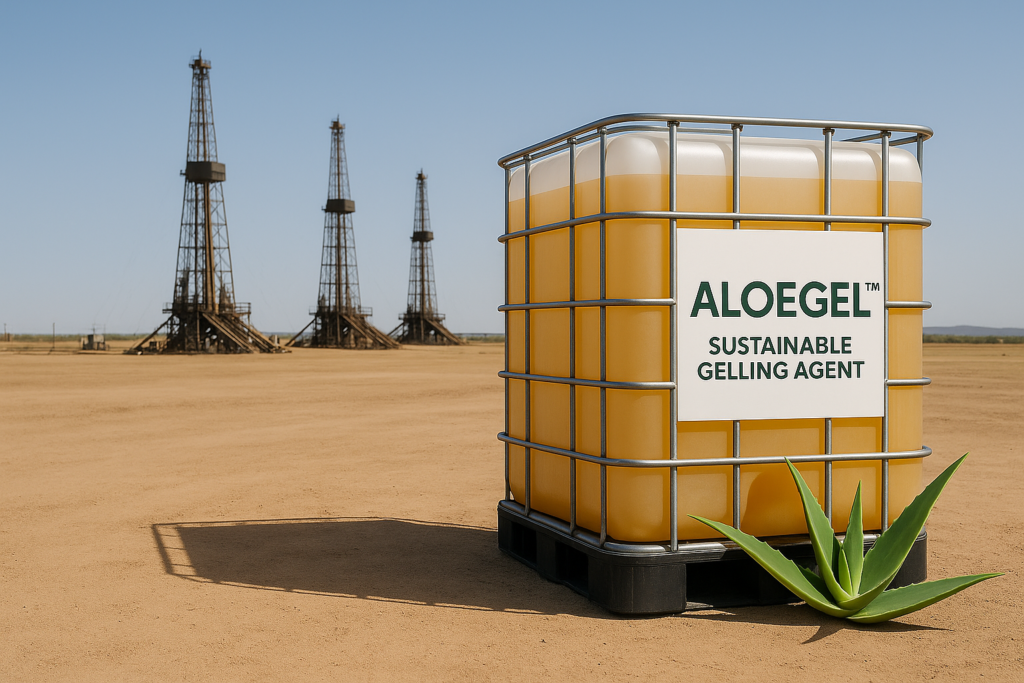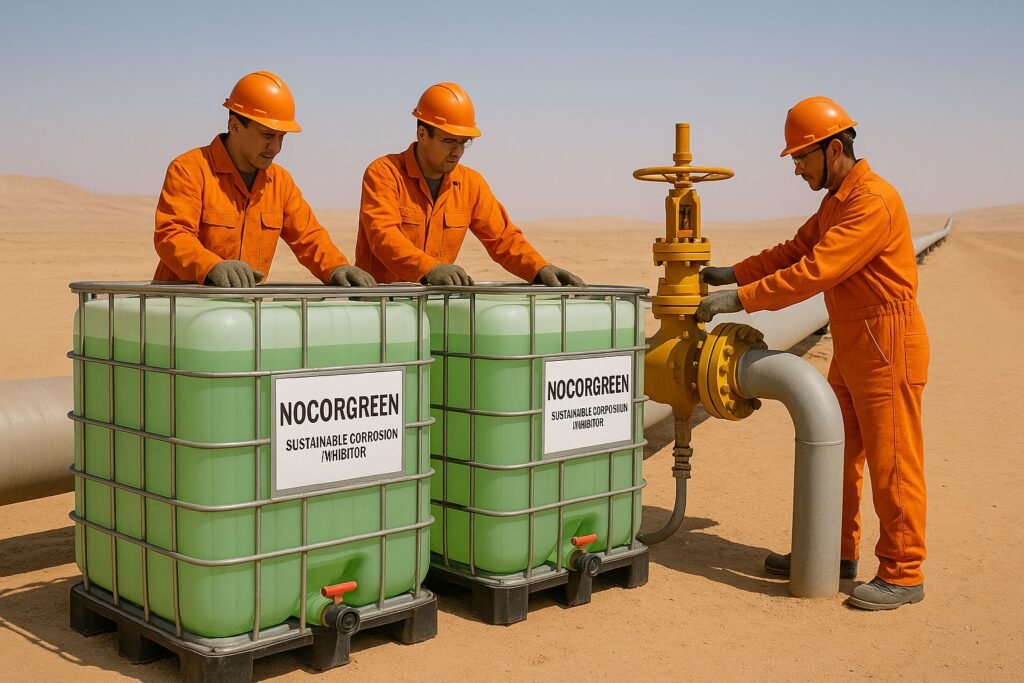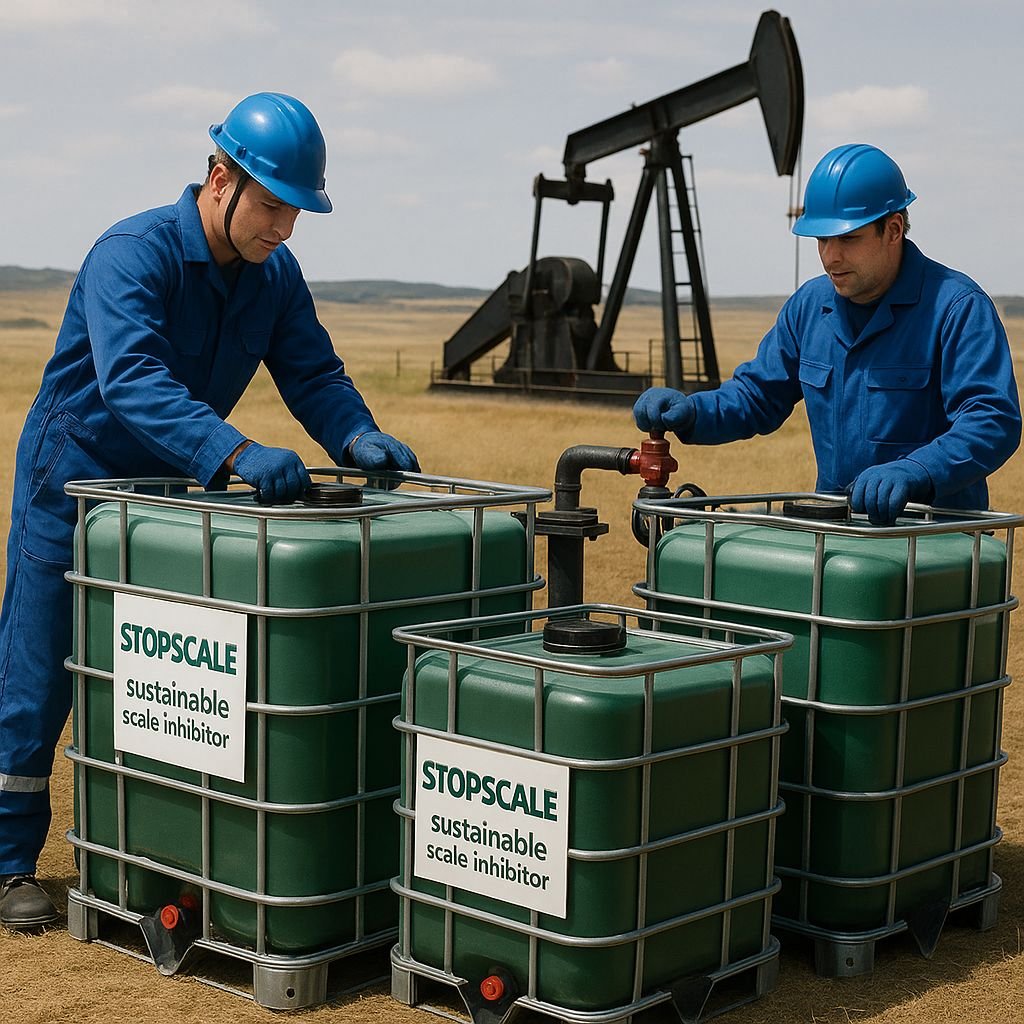Advantages of Aloe-Based Gelling Agents Compared to Synthetic Polymers, Guar Gum, and Xanthan Gum in Hydraulic Fracturing.
Introduction
The oil and gas industry is facing growing demands to reduce environmental impact while maintaining operational efficiency. In hydraulic fracturing (fracking), gelling agents play a critical role in increasing the viscosity of fluids to efficiently carry proppants into the formation. Traditionally, guar gum, xanthan gum, and synthetic polymers such as polyacrylamides or carboxymethyl cellulose have been used for this purpose.
However, the emergence of aloe-based gels, particularly ALOEGEL™ by Aloetrade America, introduces a fully biodegradable, renewable, and environmentally responsible alternative that performs on par with conventional options.
Technical and Environmental Comparison
| Property | Aloe Gel (ALOEGEL™) | Guar Gum | Xanthan Gum | Synthetic Polymers |
|---|---|---|---|---|
| Source | Plant-based (Aloe vera) | Plant-based (legume) | Microbial (fermentation) | Petrochemical-derived |
| Renewability | 100% renewable | Renewable | Renewable | Non-renewable |
| Biodegradability | High | Medium | Medium | Low to none |
| Environmental compatibility | Excellent | Good | Moderate | Low |
| Impact on flowback water | Minimal, non-polluting | Medium | Medium | Toxic and persistent |
| Current cost | Stable and competitive | Rising sharply | High | Variable, oil price linked |
| Additive compatibility | High (NOCORGREEN™, STOPSCALE™) | Moderate | Moderate | Often limited |
| Regulatory compliance | Facilitated | Partial | Partial | Difficult |
Aloe Gel Sustainability: A Truly Green Resource
Aloe vera gel, as used in ALOEGEL™, is sourced from sustainably managed plantations. Unlike guar gum, whose price has surged due to high demand in the oil and food sectors, aloe offers faster regeneration cycles, lower water requirements, and improved cultivation sustainability.

The polysaccharides in aloe naturally increase viscosity, without the need for synthetic modifiers. Moreover, aloe gel is entirely biodegradable and does not pollute rivers, aquifers, or surface water—a critical consideration for operations near water resources. It also does not alter or contaminate flowback water, allowing for easier handling and disposal.
Synergy with Sustainable Additives: NOCORGREEN™ and STOPSCALE™
ALOEGEL™ is fully compatible with other green additives developed by Aloetrade America, such as:
- NOCORGREEN™: A sustainable, plant-based corrosion inhibitor.
- STOPSCALE™: A biodegradable scale inhibitor with no phosphonates or amines.

These products create a comprehensive and environmentally safe fracking fluid system, reducing regulatory hurdles and improving ESG reporting.

📘 More at: Aloetrade America – Sustainable Aloe Products for Oil & Gas
Regulatory Advantage: Compliance Made Easier
Using a clean, aloe-based gelling system enables:
- Compliance with tight environmental regulations in U.S. states like California, New Mexico, Pennsylvania, and Colorado.
- Simplified flowback water treatment according to water disposal rules in Neuquén Province, Argentina—home of the Vaca Muerta shale formation.
- Alignment with ESG goals, enhancing corporate reputation and stakeholder confidence.
Conclusion
In a context where sustainable innovation is a competitive advantage, ALOEGEL™ presents itself as a technically efficient, eco-friendly, and economically viable alternative to synthetic and traditional gelling agents. Compared to guar gum, xanthan gum, and petrochemical polymers, aloe gel stands out for its:
- Fully renewable and biodegradable nature,
- Non-toxic impact on water systems,
- Compatibility with plant-based corrosion and scale inhibitors,
- And ease of regulatory compliance across diverse jurisdictions.
ALOEGEL™ helps oil and gas operators meet environmental challenges without compromising fluid performance or cost-efficiency—an ideal solution for the future of hydraulic fracturing.
For more information on the product, TDS, MSDS please visit the page SUSTAINABLE GELLING AGENT FOR HYDRAULIC FRACTURING.
